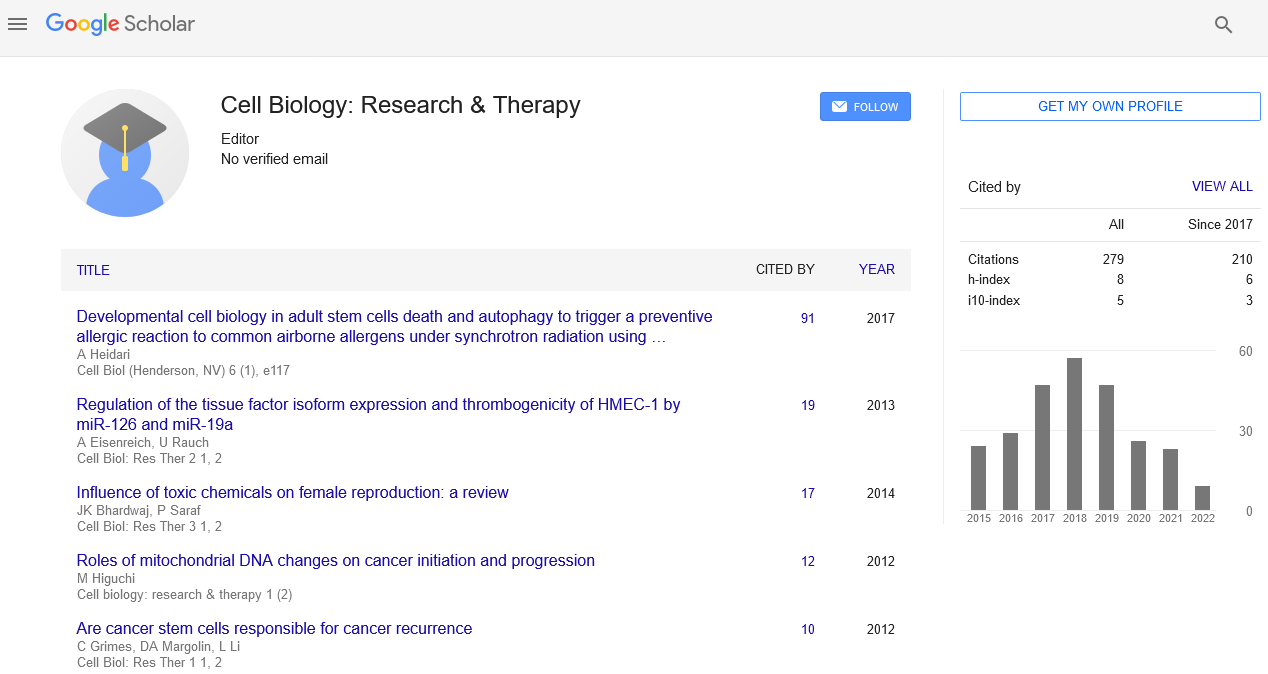Research Article, Cell Biol Res Ther Vol: 4 Issue: 2
Antioxidant-Dependent Prevention of H2O2-Induced Premature Senescence in Human Endometrial Stem Cells
| Alla N Shatrova1, Aleksandra V Borodkina 1, Nikolay N Nikolsky1,2 and Elena B Burova1* | |
| 1Department of Intracellular Signaling and Transport, Institute of Cytology, Russian Academy of Sciences, St Petersburg, Russia | |
| 2Department of Medical Physics, St Petersburg State Polytechnical University, St Petersburg, Russia | |
| Corresponding author : Elena B. Burova Department of Intracellular Signaling and Transport, Institute of Cytology, Russian Academy of Sciences, St Petersburg, Russia Tel: +7 812 2974596 E-mail: burova_elena@yahoo.com |
|
| Received: July 06, 2015 Accepted: August 08, 2015 Published: September 04, 2015 | |
| Citation: Shatrova AN, Borodkina AV, Nikolsky NN, Burova EB (2015) Antioxidant-Dependent Prevention of H2O2-Induced Premature Senescence in Human Endometrial Stem Cells. Cell Biol: Res Ther 4:1. doi:10.4172/2324-9293.1000118 |
Abstract
Human endometrium-derived mesenchymal stem cells (hMESC) undergo the premature senescence in response to sublethal H2O2 doses what may complicate their successful transplantation into recipients with age-related disorders accompanied by increased levels of oxidative stress. Therefore, basic research is needed to improve and develop new therapeutic strategies based on the stem cell prevention from premature senescence in oxidative stress conditions. The effects of antioxidants on hMESC remain as yet unexplored. The present study aimed to evaluate an ability of antioxidants, N-acetyl-Lcysteine (NAC) and diphenylene iodonium (DPI) to prevent H2O2-induced premature senescence of hMESC
 Spanish
Spanish  Chinese
Chinese  Russian
Russian  German
German  French
French  Japanese
Japanese  Portuguese
Portuguese  Hindi
Hindi 